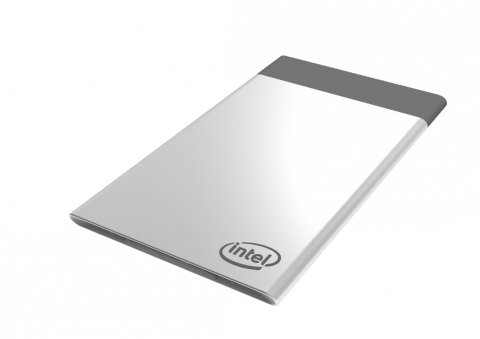Intel Reveals Credit-Card Sized Computer For Bringing Processing Power To IoT

CES 2017: The Compute Card features Intel’s Kaby Lake processors and flexible connectivity options
Intel has revealed the Compute Card, a credit card-sized PC designed to add a new level of mobility and connectivity into the PC world.
It is essentially a system-on-a-chip (SoC) sporting Intel’s latest Kaby Lake processor, memory and storage, and packaged up into a pocketable format.
But rather than target consumers, who already have pocket-sized computers in the form of smartphones, the Compute Card uses wireless connectivity and what Intel claims are flexible I/O options to enable hardware manufacturers to create devices in which micro computers can slot into.
Compute Card for IoT
![]() The idea behind Compute Card is that manufacturers can use it to make their devices smart with a solid dollop of processing power, rather than worry about trying to configure their own custom smart innards or modules for devices such as security cameras or refrigerators.
The idea behind Compute Card is that manufacturers can use it to make their devices smart with a solid dollop of processing power, rather than worry about trying to configure their own custom smart innards or modules for devices such as security cameras or refrigerators.
“Device makers simply design a standard Intel Compute Card slot into their device and then utilize the best Intel Compute Card for their performance and price needs.,” Intel said.
“This reduces the time and resources needed to design and validate the compute block and helps speed up innovation to bring the power of intelligence into an ever-wider range of devices.”
Essentially, Intel appears to be looking at using the Compute Card as a means to enable the compute side of the Internet of Things (IoT) world, a competitive arena for chip makers who are able to engineer small processors and SoCs capable of fitting into smart devices; think ARM and Qualcomm as other examples.
Intel said it is already working with the likes of Dell, HP, Lenovo and Sharp to create uses and products that tap into Compute Card’s processor power and connectivity.
Intel already appears to be more than comfortable operating in the IoT arena, having recently announced the Atom E3900 processors designed for small form factor devices. At CES 2017, the company outlined products that will see it push deeper into the IoT with its work on virtual reality, driverless cars and 5G networks.
What do you know about the Internet of Things? Take our quiz!